Conference
Seminars & Events

- Conference
- Seminars & Events
The 4th lecture of APRU&OJERI@KU SWM Global Lecture Series
Speaker: Prof. David Wardle, Nanyang Technological University
Title: Long term drivers of aboveground-belowground linkages and ecosystem functioning
Date & Time: 26th May at 4:00 PM (Seoul)

APRU Sustainable Waste Management Global Lecture Series is designed to provide a sound foundation in basic principles and unify research across ecology to conservation and environmental health to waste management with a focus on the sustainability and Environmental, Social and Governance (ESG).
This lecture series is part of the key activities of the APRU Sustainable Waste Management Program that will be held from March to December 2021. The aim is to provide insights of cutting-edge research to the network. Experts from diverse fields and studies will contribute to individual lectures that generate a broad overview of the subject area.
The series is open to academics and students. Participants will be able to learn from and interact with world-renowned experts through a series of lectures delivered via a real-time video conference on Zoom.
The following topics will be discussed with a focus on the E pillar within ESG.
- Conservation
- Ecology
- Environmental Chemistry
- Environmental Health
- Environmental Resource Management
- Sustainable Waste Management
- Water Science
- Global Sustainability
- Life Science Assessment
| Speakers | Date&Time Registration | Global Lecture Series |
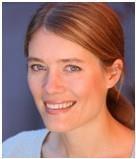
|
31st March at 7:00 PM (Boston) 1st April at 8:00 AM (Seoul) Watch the video here. |
Speaker : Prof. Jessika Trancik, Massachusetts Institute of Technology Title : Data-based Models to Accelerate Clean Energy Innovation Jessika Trancik is a Professor in the Institute for Data, Systems, and Society at the Massachusetts Institute of Technology. Her research examines the dynamic costs, performance, and environmental impacts of energy systems to inform climate policy and accelerate beneficial and equitable technology innovation. Her projects focus on all energy services including electricity, transportation, heating, and industrial processes. This work spans solar energy, wind energy, energy storage, low-carbon fuels, electric vehicles, and nuclear fission among other technologies. Prof. Trancik received her B.S. from Cornell University and her Ph.D. from the University of Oxford as a Rhodes Scholar. She is currently an external professor at the Santa Fe Institute and was formerly at Columbia University’s Earth Institute, and at WSP International/UNOPS (now Interpeace) in Geneva. |

|
20th April at 8:00 PM (New York) 21st April at 9:00 AM (Seoul) Watch the video here. |
Speaker: Prof. Ah-Hyung (Alissa) Park, Columbia University in the City of New York Title: Towards Sustainable Energy and Materials: Carbon Capture, Utilization and Storage Professor Park is the Lenfest Chair in Applied Climate Science at Columbia University and is also the Director of the Lenfest Center for Sustainable Energy, where she researches issues in energy, environmental engineering and particle technology. Park has received numerous honors and distinctions throughout her career as a researcher. Recently she has been appointed as a member of the International Committee at the American Institute of Chemical Engineers, where she has also been elected as the Vice-Chair (2009-2011) and Chair (2011-2013) of the Fluidization and Fluid-Particle Systems Group and Treasurer (2010-present) of the Particle Technology Forum. She has also recently received the James Lee Young Investigator Award, the NSF Career Award, and a nomination for the Packard Fellowship. In 2011, she was the distinguished speaker at the Womensphere Emerging Leaders Global Summit. A more complete list of her many accomplishments can be found on her website. A graduate of the University of British Columbia, Professor Park received a Bachelor of Applied Science with distinction and a Masters of Applied Science, both in Chemical and Biological Engineering. She received a PhD degree in Chemical and Biomolecular Engineering from the Ohio State University. |
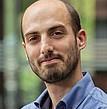
|
12th May at 10:00 AM (Germany)/ at 5:00 PM (Seoul) Register here! |
Speaker: Dr. Carlos Antonio Guerra, Integrative Biodiversity Research (iDiv) Title: Recent Advancements in Soil Macroecology and Monitoring Carlos A. Guerra is a researcher at the German Center for Integrative Biodiversity Research (iDiv) and received his PhD from the University of Évora. He is an ecologist focused on predicting and evaluating the effects of global change drivers on soil biodiversity. In the past few years, he has co‐lead a global initiative, the Global Soil Biodiversity Observation Network, to identify and close global gaps in soil biodiversity knowledge. He works in the interface between scales, from local to global, and disciplines, from ecology to risk management, to develop a better understanding of soil processes and soil biodiversity drivers. |

|
26th May at 3:00 PM (Singapore)/ at 4:00 PM (Seoul) Register here! |
Speaker: Prof. David Wardle, Nanyang Technological University Title: Long term drivers of aboveground-belowground linkages and ecosystem functioning David Wardle works as the Smithsonian Professor of Forest Ecology at NTU. He has published around 350 peer-reviewed journal articles of which around 30 have appeared in Science and Nature, as well as two books on aboveground-belowground linkages (published by Princeton University Press in 2002 and Oxford University Press in 2010). He serves or has served on over ten editorial boards, including for Science, Ecology, Journal of Ecology and Ecology Letters. He has also been recognized as a highly cited scientist in every highly cited list from 2006 onwards and is among the world’s 10 most cited scientists in ecology and environmental sciences. Further, he has supervised a very diverse assortment of >50 postdoctoral researchers and PhD students, most of which have actively published in major journals under his supervision (including in Nature and Science), and nearly all of which hold university faculty positions, or environmental research, policy and management positions, in 16 separate countries and 5 continents. He has also been the recipient of several scientific awards, recent examples including the 2016 Rosén´s Linnaeus Prize in Botany, the 2018 Eminent Ecologist award from the Journal of Ecology, and the 2020 Whittaker Distinguished Ecologist award from the Ecological Society of America. |
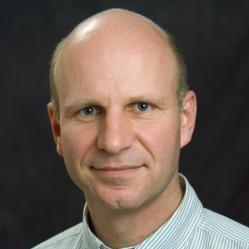
|
16th June |
Speaker: Prof. Johannes Lehmann, Cornell University Johannes Lehmann, Liberty Hyde Bailey professor of soil biogeochemistry and soil fertility management at Cornell University, received his graduate degrees in Soil Science at the University of Bayreuth, Germany. During the past 20 years, he has focused on nano-scale investigations of soil organic matter, the biogeochemistry of pyrogenic carbon and sequestration in soil, sustainable land management practices in tropical agriculture, and biochar-bioenergy systems. Dr. Lehmann is a member of the steering group of the International Soil Carbon Network, has testified in the US congress, and briefed the President’s council of advisors. Dr. Lehmann has authored more than 200 journal publications, has been named Highly-Cited Researcher by Thomson Reuter since 2014, Hans Fischer Senior Fellow at TU Munich, Humboldt Fellow and member of the German National Academy of Science. He co-founded the International Biochar Initiative in 2007 and served as Chair of its Board of Directors with interruption from 2007 to 2016. |

|
July 2021 |
Speaker: Prof. Jinyue Yan, Royal Institute of Technology (KTH) Dr. Yan is professor of Energy Engineering, Royal Institute of Technology (KTH) and Mälardalen University, Sweden; Director of Future Energy Profile; Editor-in-Chief of Applied Energy; Editor-in-Chief of Handbook of Clean Energy Systems (Wiley). He is an active member of European Academy of Sciences and Arts. Prof. Yan received his PhD at KTH in 1991. During 2001 to 2005, Dr. Yan was chair professor and head of Energy Engineering at Luleå University of Technology, Sweden. Prof. Yan’s research interests include simulation and optimization of advanced energy systems incl. advanced power generation; renewable energy (bioenergy and solar); carbon capture and storage; clean development mechanism (CDM); and fundamental engineering thermodynamics. Prof. Yan published about 400 papers including the paper in Science, Nature Climate Change and special feature article in ASME Mechanical Engineering. |

|
August 2021 |
Speaker: Prof. Mellissa Withers, University of Southern California Mellissa Withers, PhD, MHS is Associate Professor at the Keck School of Medicine in the Department of Preventive Medicine. She is based at the USC Institute on Inequalities in Global Health. She also is also Director of the Global Health Program of the Association of Pacific Rim Universities, a non-profit network of 55 universities in the region. She received a PhD from the Department of Community Health Sciences at the UCLA Fielding School of Public Health with a minor in cultural anthropology. She also earned a Master’s in Health Sciences from the Department of International Health from the Johns Hopkins Bloomberg School of Public Health and a BA in international development from UC Berkeley. Dr Withers is the editor of two books: Global Perspectives on Sexual and Reproductive Health Across the Lifecourse, and Global Health Leadership: Case Studies from the Asia-Pacific. She has published more than 40 scientific articles and serves on the editorial boards of six international global health journals. She also writes a blog on human trafficking titled Modern-Day Slavery for Psychology Today. |
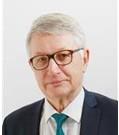
|
September 2021 |
Speaker: Prof. Thomas Højlund Christensen, Technical University of Denmark Thomas H. Christensen is a Professor at the Department of Environmental Engineering at the Technical University of Denmark in Copenhagen. He is Honorary Professor at Tongji University, Shanghai and a Distinguished Visiting Professor at Tsinghua University, Beijing, PR China. He received his degrees from the Technical University of Denmark (MSc in solid waste), the University of Washington, Seattle (PhD in water chemistry) and the Copenhagen University (Dr. Agro. in soil chemistry). The research interest covers all aspects of waste management as well as effects of waste on soil and groundwater quality. His recent research focus is on life-cycle-assessment of waste management systems; he is the founder of the EASETECH model used around the world for LCA-modelling of waste management systems. He has served in several research councils, professional societies and university boards. In 2011 the published the text book “Solid Waste Technology and Management”. |
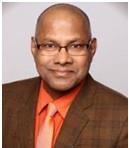
|
October 2021 |
Speaker: Prof. Amar K. Mohanty, University of Guelph Prof. Amar Mohanty, is OAC Distinguished Research Chair in Sustainable Biomaterials and the Director of the Bioproducts Discovery and Development Centre at the University of Guelph, Canada. He is the Editor-in-Chief of Sustainable Composites, Composites Part C. He is a highly cited researcher with more than 900 publications to his credit, including 400 peer-reviewed journal papers and 61 patents awarded/applied. Prof. Mohanty received many awards, including the Lifetime Achievement Award from the BioEnvironmental Polymer Society , Andrew Chase Forest Products Division Award from the American Institute of Chemical Engineers , JL White Innovation Award from the Polymer Processing Society and the Synergy Award for Innovation from Natural Sciences and Engineering Research Council of Canada . He is a Fellow of the American Institute of Chemical Engineers, the Royal Society of Chemistry, and the Society of Plastic Engineers. His constant innovation has catalyzed changes across several manufacturing sectors, including compostable packaging, environmentally friendly consumer products & automotive parts. |

|
November 2021 |
Speaker: Prof. Ange Nzihou, IMT Mines Albi Ange Nzihou is a Distinguished Professor of Chemical & Environmental Engineering at the RAPSODEE Research Center-CNRS, IMT Mines Albi. He holds other positions among which, a Fulbright visiting professor at Princeton University, Visiting professor at Zhejiang University and Mahatma Gandhi University. He is the Editor-in-Chief of the Journal "Waste and Biomass Valorization" and the Editor of the Handbook on “Characterization of Biomass, Biowaste and related By-products”. He is also Member of the Advisory Board of the PASET program of the World Bank and Expert for EU Energy and Environment framework programs. His main research fields and expertise are energy and added-value materials from biomass and waste; bioresources to biochar, graphitic materials and graphene; hydrogen and syngas production from bioresources; elaboration, functionalization of carbon and phosphate-based composites / hybrid materials for energy and depollution; thermochemical processes . He has published about 175 papers in international peer reviewed journals, 5 world patents, edited 1 reference book, co-edited 3 books and co-authored 12 book chapters, chaired and co-chaired 10 international conferences, 2 international summer schools. He has delivered 41 plenary and invited keynote lectures in international conferences. He is currently PI of 2 research chairs with industry. He has received international and national scientific recognitions and awards such as the Fulbright scholarship for scientific excellence in 2020, the Grand Prix of the Academy of Sciences of France in 2018, and the insignia of Knight of National Order of Merit on the behalf of the President of France in 2017 for his scientific accomplishment. |
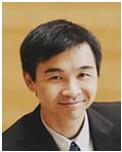
|
December 2021 |
Speaker: Prof. Yen Wah Tong, National University of Singapore Associate Professor Yen Wah Tong joined the Department of Chemical and Biomolecular Engineering at the NUS in 2001. His research started with biomaterials based on peptide-amphiphile hydrogels for tissue engineering of the liver and brain together with biomolecule delivery. The major focus of his Biomimetic Materials and Systems Laboratory is thus on applying biomimetic principles for various applications, including membranes, scaffolds and processes. Recently, his group has expanded research into bioenergy using biomass wastes and municipal solid wastes, converting these into renewable fuels and chemicals. Prof Tong is currently the Assistant Dean for Research in the Faculty of Engineering at NUS. He is also the co-Programme Director for an NRF CREATE programme with Shanghai Jiaotong University “Energy and Environmental Sustainability Solutions for Megacities". |

|
December 2021 |
Speaker: Prof. Jörg Rinklebe, Bergische Universität Wuppertal Dr. Jörg Rinklebe is a Professor for Soil- and Groundwater-Management at the University of Wuppertal, Germany. His academic background covers environmental science, bioavailability of emerging contaminants, and remediation of contaminated soils using value-added products such as biochar. He works at various scales, ecosystems, and spheres including pedosphere, hydrosphere lithosphere, biosphere, and atmosphere and has a certain experience in fundamental soil science. His main research is on soils, sediments, waters, plants, and their pollutions (trace elements and nutrients) and linked biogeochemical issues with a special focus in redox chemistry. He also has a certain expertise in soil microbiology. Professor Rinklebe is internationally recognized particularly for his research in the areas of biogeochemistry of trace elements in wetland soils. According to SCOPUS, Professor Rinklebe published over 280 research papers, 21 were nominated in the in ISI web of Science as "Highly Cited Papers" and 3 were s nominated as "Hot Paper". These papers have been cited 8736 time in Scopus with h-index = 52. Based on these citations, Prof Rinklebe has been selected as ISI Web of Science Globally Highly Cited Researcher in 2019 and 2020. Also, he published three books entitled "Trace Elements in Waterlogged Soils and Sediments” (2016), “Nickel in Soils and Plants” (2018), and “Soil and Groundwater Remediation Technologies” (2020), as well as numerous book chapters. He is serving as Chief Editor for Special Issues of “Environmental Pollution” and “Journal of Hazardous Materials”; Co-Editor in Chief of the international journal Critical Reviews in Environmental Science and Technology (CREST), and as guest editor of various leading international journals. He organized many special symposia at various international conferences such as “Biogeochemistry of Trace Elements” (ICOBTE) and “International Conference on Heavy Metals in the Environment” (ICHMET). He was an invited speaker (plenary and keynote) at many international conferences. He is Visiting Professor at the Department of Environment, Energy and Geoinformatics at Sejong University, Seoul, South Korea and Guest Professor at the Department of Environmental Engineering, China Jiliang University, Hangzhou, Zhejiang, China. Professor Rinklebe is Vice President of the International Society of Trace Element Biogeochemistry (ISTEB). |
The Global Lecture Series is chaired by Prof. Yong Sik Ok, Director of APRU Sustainable Waste Management Program and Director of Korea Biochar Research Center in Korea University.
Discussants
- William Mitch, Stanford University
- Ali Abbas, The University of Sydney
- Ong Hwai Chyuan, University of Technology Sydney
- Cheng Gu, Nanjing University
- Chia-Hung Hou, National Taiwan University
- Longbin Huang, University of Queensland
- Sutha Khaodhir, Chulalongkorn University
- Chi-Hwa Wang, National University of Singapore
- Xiaonan Wang, National University of Singapore
- Shicheng Zhang, Fudan University
APRU Disclaimer: The views, information, or opinions expressed during the APRU Sustainable Waste Management Global Lecture Series are solely those of the individuals involved and do not necessarily represent those of The Association of Pacific Rim Universities (“APRU”) and its employees. APRU is not responsible and does not verify for accuracy any of the information contained in the series.
For more details, please visit ARPU Sustainable Waste Management Global Lecture Series.



